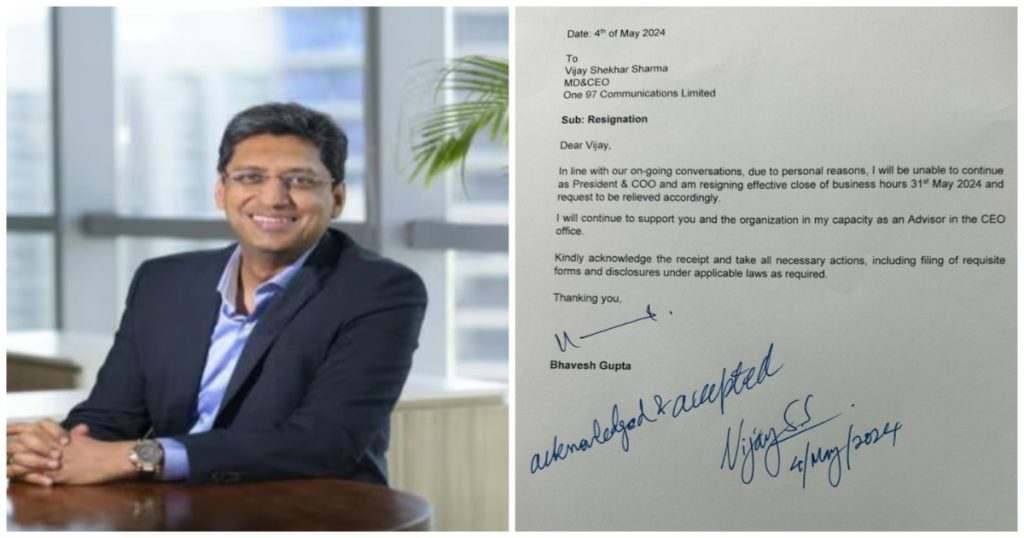Even as Paytm has been battling regulatory challenges at its payments bank, its top executives have been making a beeline for the exit.
Paytm President And Chief Operating Officer Bhavesh Gupta has resigned. Gupta, who oversaw the payments and lending divisions at Paytm, cited personal reasons for his departure. “In line with our on-going conversations, due to personal reasons, I will be unable to continue as President and COO,” Gupta wrote in a letter to Paytm MD Vijay Shekhar Sharma. “I am resigning effective close of business hours 31st May 2024 and request to be relieved accordingly,” he added.

Paytm has accepted Bhavesh Gupta’s resignation, and has transitioned him into into a role as an “advisor” in the CEO office. Paytm also announced two new management changes — Paytm Money CEO Varun Sridhar has been made the CEO of Paytm Services Private Limited, and will focus on the distribution of mutual funds and wealth management products. To replace him, Rakesh Singh has been appointed the new Paytm Money CEO.
Before joining Paytm, Bhavesh Gupta had worked with prominent financial services names including ICICI Bank and IDFC Bank, where he was heading its SME & Business Banking division. He had joined Paytm in 2020, and become its President and COO. He was thought to be one of the most prominent executives at the company.
Bhavesh Gupta’s departure comes weeks after Paytm Payments Bank CEO Surinder Chawla had resigned to “explore better career prospects”. A few months prior, Paytm Payments Bank has been all but crippled by an RBI directive that required the bank to stop accepting new deposits over “persistent non-compliances”. It had later emerged that Paytm hadn’t had adequate KYC norms in place, which had meant that over a thousand accounts at the bank were linked to the same PAN card. A foreign syndicate had reportedly been exploiting these loopholes to launder money for the promotion of fraudulent services, which included prohibited gaming activities and dating services, and cheated lakhs of Indians. The bank had also been hit by a Rs. 5.49 crore penalty by the Financial Intelligence Unit for these non-compliances.
Paytm’s stock had been hammered as a result, and currently trades at Rs. 370 a share, which is close to its all-time low, and 83 percent below its IPO price. Senior executives are heavily compensated through company stock, and Paytm’s C-suite likely isn’t too happy with seeing its pay packages melt away. And with Paytm’s share in digital transactions eroding, and its payments bank all but finished, many other senior executives could look to jump ship in the coming months.
